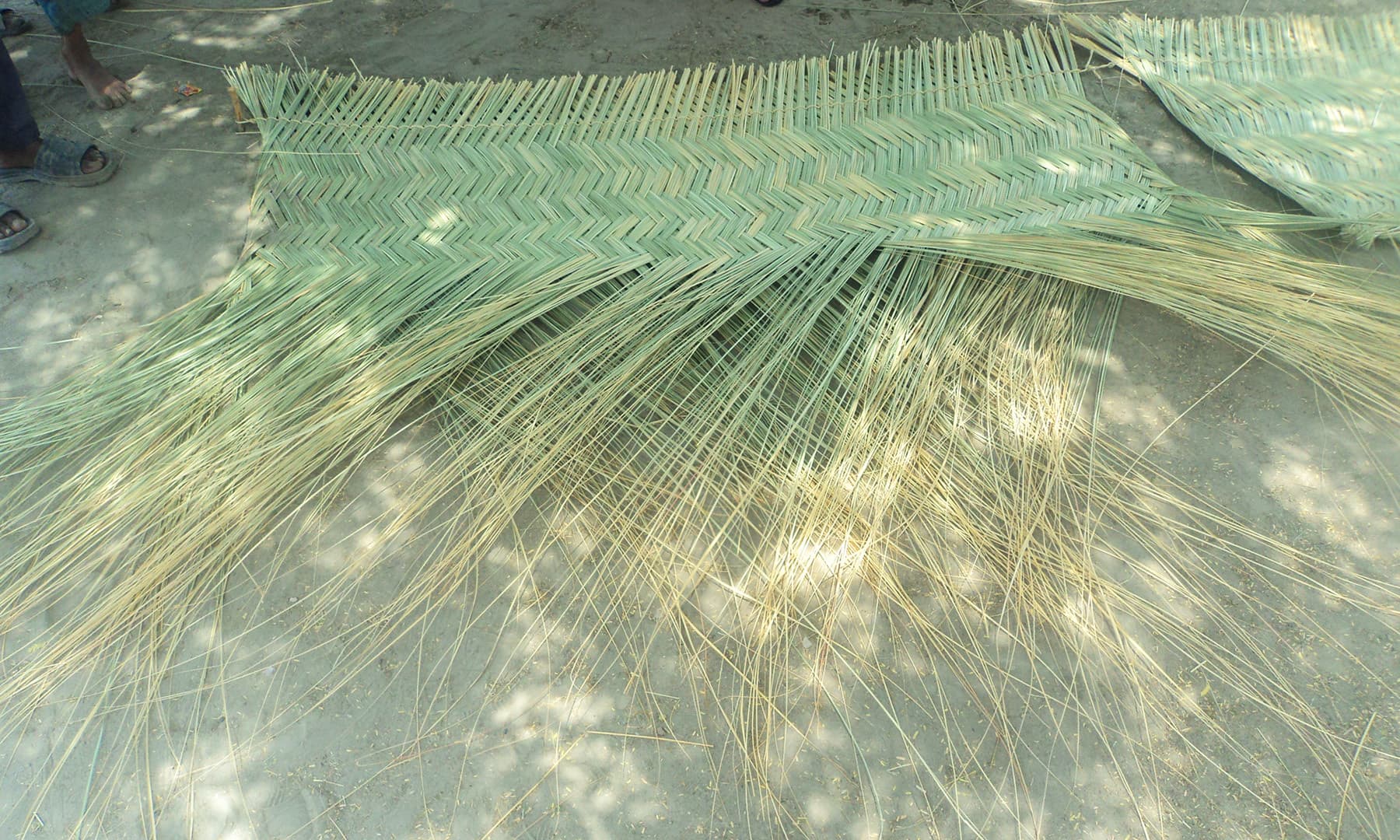Khairpur's golden harvest and the women behind it
Although date palm is a developing industry in Pakistan, the country is already one of the largest producers of this fruit crop in the world. And in the business of producing dates, the city of Khairpur holds a very significant place.
Khairpur’s village economy is based on date palm processing and export; this is a source of employment not only for the villagers in Khairpur but also residents of nearby cities, who migrate to the district to work during the crop harvest season. Most of the workers are men, though, with only a small number of women seen working in farms, and that too, the more aged ones.
 |
| A majority of Khairpur's dates are exported to India, Sri Lanka and Bangladesh. |
 |
| The total annual production of dates in Pakistan is about 0.54 million tons with contribution from Sindh at 0.28 million tonnes. |
 |
| The date variety predominantly found in Khairpur is called Aseel. 85 per cent of these dates are dried and turned into choharas. |
 |
| The dates are boiled in water mixed with yellow colour for some time before being taken out to dry. |
 |
| A large number of men in the villages do not have regular employment and rely on the date palm business. |
 |
| The dates are boiled in water mixed with yellow colour for about 20 minutes before being taken out to dry. |
As in other parts of Pakistan, young women’s economic independence in this region is also subject to patriarchal authority; their access to the public sphere is strictly controlled and they are mostly restricted to the private sphere. Young women, therefore, cannot carry out income-generating activities by directly working in the fields. There is a stigma attached to their mobility.
But Khairpur's young women still do not sit idle and participate in this business indirectly.
They use the date palm by-products to make handicrafts such as mats (tado), baskets (tokri), pots (pindi) and hand fans, besides processing the dates and choharas (dried dates) at their homes. The date palm leaves are utilised to make hand fans, while the mats are used to sun dry the fruit.
The mats are the hardest to make as the work involves sophistication and its straws can damage the hands.
 |
| A half woven Tado. |
 |
| Weaving a Tado can severely hurt the hand. |
 |
| Tados are used to dry out the dates. |
Khairpur’s date palm business is hugely dependent on these women’s work who due to their controlled mobility cannot join the industry directly and are forced to work from home. Since there is lack of any formal industry to supply the date palm trade with these handicrafts, women’s informal work becomes increasingly important to keep this business running.
In many parts of the patriarchal and patrilineal South Asia, women suffer from payment inequality and the case in Khairpur is no different. The absence of proper market opportunities and lack of resources make it harder for women to sell their products and on top of it cultural restrictions make it almost impossible for them to get some good return of their labour.
 |
| The dates are spread out in the sun for at least a week to dry. |
 |
| After they have been dried, the dates are put into gunny bags to be sold. |
Ultimately, they have to rely on the middlemen, who frequently visit them to buy their products and sell them in other markets. Buying the handicrafts for a pittance, the middleman sells it for twice or thrice the rate and makes considerable profits.
One pindi (pot) for approximately 10 rupees but sells it for 25-30 rupees. The women in the villages of Khairpur are well aware of this exploitation but are helpless in this regard – if the middleman does not buy their product, they will end up earning no money at all.
 |
| Khairpur's golden harvest. |
 |
| Khairpur's golden harvest. |
 |
| After they have been dried, the dates are put into gunny bags to be sold. |
 |
| Khairpur's golden harvest. |
These women's produce contribute a great deal to their family’s savings who otherwise would have to spend on these items; so even the low wages means a lot. A large number of men in the villages do not have regular employment and rely on farming and temporary employment from the date palm business. The majority of women spend this money on their children’s clothing and healthcare while others share this money with their husbands in time of need.
“I earn from making pots, mats and containers. This money matters a lot for me and my family; my husband does not do any work, so my family survives on the money I earn,” says 18-year-old Asiya.
Quite sadly though, the hands that are always busy in making ends meet, ultimately stay invisible.
Due to cultural sensitivities, the photographer was not given permission to take pictures of all the women. All photos by author.
 |
Nadia Agha is an academic and is currently pursuing her PhD in Women's Studies from the University of York, England.
She tweets @Aghanadia.

